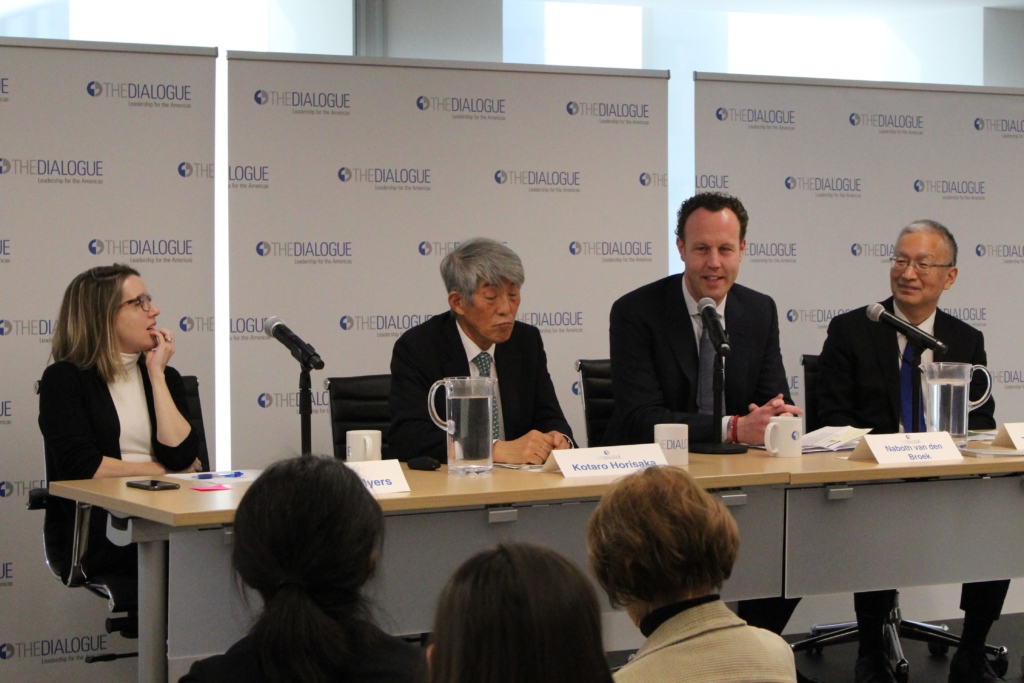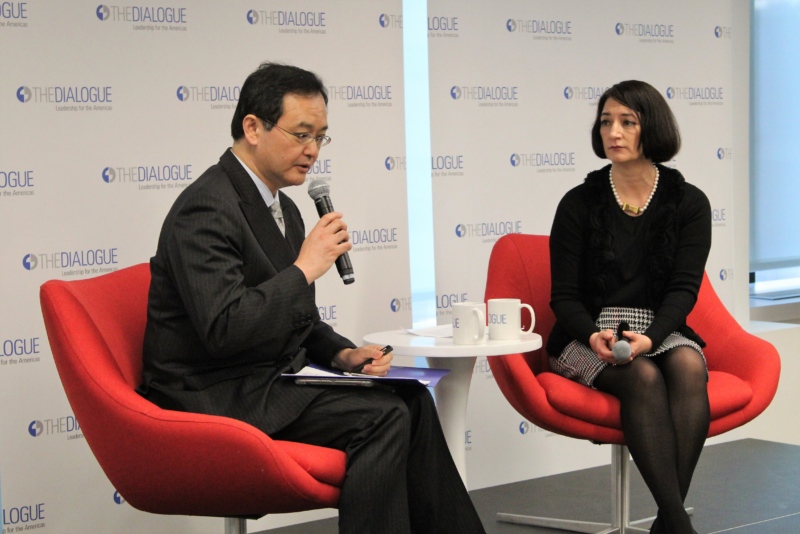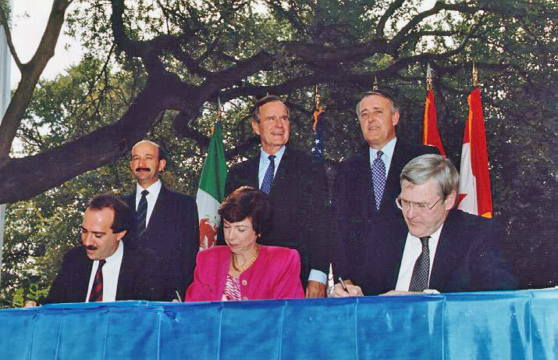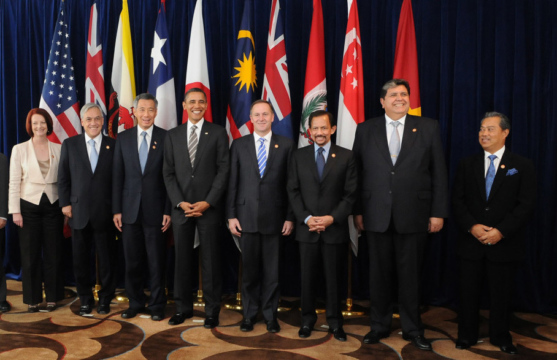Is the Transpacific Trade Partnership Initiative on Track?
Is the TPP on track to complete a framework in 2012, as planned?


On December 11, the Inter-American Dialogue, in cooperation with the Japan Association of Latin America and the Caribbean (JALAC) held a public meeting in Washington, DC to examine the state of Japan-Latin America and the Caribbean (LAC) relations.
It has been a productive year for Japan on the trade front. Over the past twelve months, Japan not only finalized an economic partnership agreement (EPA) with the European Union, but also signed and ratified a revised version of the Trans-Pacific Partnership (now known as the CPTPP), which includes Chile, Mexico, and Peru.
In her opening remarks, Dialogue Co-chair Ambassador Carla Hills lauded Japan’s positive relations with the countries of Latin America and the Caribbean as a calming factor in global trade. “Japan’s constructive actions,” she stated, “can serve as a model for the rest of the world at a time when the understanding and appreciation of open markets have declined.”
Participants commended Japan’s foreign policy towards the region—known as the “Juntos” policy—as a landmark in Japan-LAC relations. Kotaro Horisaka, professor emeritus at Sophia University, described the policy as embodying Japan’s “intention to construct a firm and lasting relationship with the region,” based on projects such as joint ventures, technical training, and economic partnership agreements. Participants also highlighted Prime Minister Shinzo Abe’s proactive approach as one of the main factors behind the recent strengthening of Japan’s ties with Latin America. Prime Minister Abe has been a frequent visitor to the region, which he has visited nearly every year since assuming office in late 2012.
In part due to the LAC’s own socio-economic development, Japan’s relations with the countries of the region relations have evolved over the years from traditional donor-recipient relations to ties based on innovation and a common agenda, which includes upholding free trade and addressing climate change. According to Akio Hosono, senior research advisor at the Japan International Cooperation Agency (JICA) Research Institute, global value chains have played a critical role in developing cross-Pacific business ties, as well as enabling agricultural innovation in areas like Brazil’s cerrado, a subregion that now produces most of Brazil's soy.

The Inter-American Development Bank (IDB) is one of the key institutions at the center of the evolving relationship. Japan is the largest non-regional shareholder of the Bank today. Reflecting on the IDB’s role between Japan and Latin America, Toshiyuki Yasui, executive director at the Inter-American Development Bank, characterized the IDB as a “catalyst and strategic partner” for Japan, that contributes to sustainable innovation and quality infrastructure to the region. Kevin Tynes, chairman of Nippon Koei LAC Co., Ltd., also noted the important role Japanese aid organizations such as JICA play in LAC infrastructure development.
Looking towards the future, both sides still must contend with external, as well as internal, factors to drive the relationship forward. Naboth van den Broek, Partner at WilmerHale, warned of the influence of geopolitics and US-China relations on Japan-LAC ties, which includes a rise in populism, re-regionalization, and “us versus them” mentalities.
Nonetheless, Tadashi Omatoi, president of Mitsubishi Chile, remains positive on the region’s prospects as long as political and economic stability continue enlarging the economic power of the middle class.
Is the TPP on track to complete a framework in 2012, as planned?
How significant of a priority should strengthening NAFTA be as compared to other trade agreements?
During this decade, and with particular intensity in recent months, several far-reaching trade negotiations have been in the works worldwide.
 Ricardo Barrios / The Inter-American Dialogue
Ricardo Barrios / The Inter-American Dialogue

